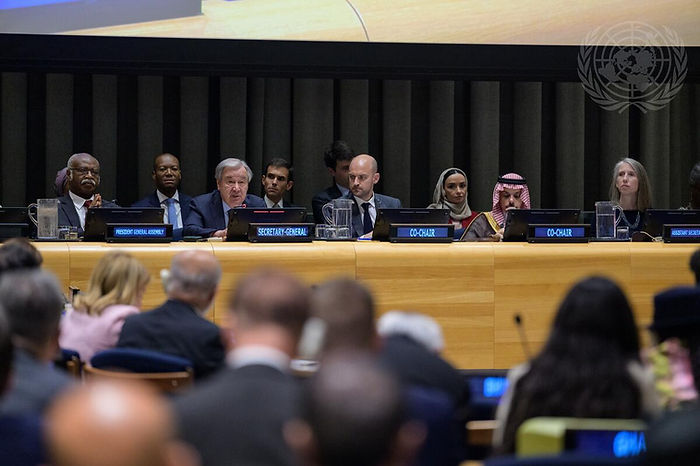By Ahmed Fathi

UNHQ, New York: I was excited to witness the adoption of the United Nations resolution on artificial intelligence -AI, (Document A/79/L.118)—a long-awaited signal that the international community is finally taking AI governance seriously. Yet after examining the details, it became clear that this was a case of ambition without teeth: a resolution grand in design but weak in delivery, creating new structures that generate reports and dialogues while skirting the hardest questions.
Inside the General Assembly Hall, the AI Resolution was heralded as a milestone. It established a 40-member Scientific Panel on Artificial Intelligence to assess risks, opportunities, and impacts, and launched a Global Dialogue on AI Governance to support the Sustainable Development Goals and bridge digital divides. Delegates lined up to cast the decision as historic: Iraq’s envoy, speaking for the Group of 77 and China, highlighted AI’s potential to transform education, health, and digital economies—provided governance is equitable, inclusive, and attentive to the needs of developing countries. Denmark, speaking for the European Union, framed the outcome as proof the UN remains relevant, praising scientific independence and multi-stakeholder exchange as tools to strengthen global capacity.
The rhetoric was ambitious, but the AI Resolution reveals the UN member states’ chronic tendency to substitute process for substance. As Secretary-General António Guterres warned in his UN@80 briefings on mandate overload and financial crisis, the Organization is in the habit of producing sweeping mandates while lacking the resources and political will to deliver on them. The AI Resolution fits neatly into this pattern—grand in ambition, limited in scope, and weak in enforcement.

The most glaring flaw is its explicit exclusion of military AI. Autonomous weapons, AI-driven surveillance, and algorithmic warfare are precisely where the dangers lie. By leaving them outside the scope of international dialogue, the UN sidesteps the most urgent threats. This is not strategic restraint—it is avoidance, designed to protect consensus at the expense of relevance.
What worries me just as much is the way this initiative will be funded. The AI Resolution leans on voluntary contributions, often from the very corporations whose influence it is meant to check. However transparent the process may appear, money has a way of bending priorities, and corporate dollars rarely come without strings attached. The text also speaks movingly about “bridging AI divides,” but without real financing or technology transfer, those words risk becoming another promise that never leaves the paper. For many countries in the Global South, this isn’t an abstract debate—it means classrooms without access to the digital tools others take for granted, hospitals without AI-driven diagnostics, and economies stuck on the sidelines while a handful of powers and companies set the rules of the future.
The AI Resolution does deserve recognition. It acknowledges the urgency of artificial intelligence governance and provides a platform for dialogue. But acknowledgement is not action. Unless member states muster the courage to confront military AI, back promises with real financing, and move beyond their chronic reliance on symbolic dialogue, this effort will not shape the trajectory of artificial intelligence.
Artificial intelligence is advancing faster than diplomacy. If the UN continues to confuse talking for governing—replicating the same mandate-overload dynamics that plague its UN@80 reform debates—it risks irrelevance in the very space it claims to lead. The choice ahead is stark: either equip the AI Resolution with real teeth or watch as the future of AI is decided elsewhere, by powers and corporations with little interest in global equity.
Ahmed Fathi is a United Nations correspondent, global affairs analyst, and author of* America First, The World Divided: Trump 2.0 Influence. *He writes about diplomacy, multilateralism, power, perception, and the politics that shape our global future.
INPS Japan




